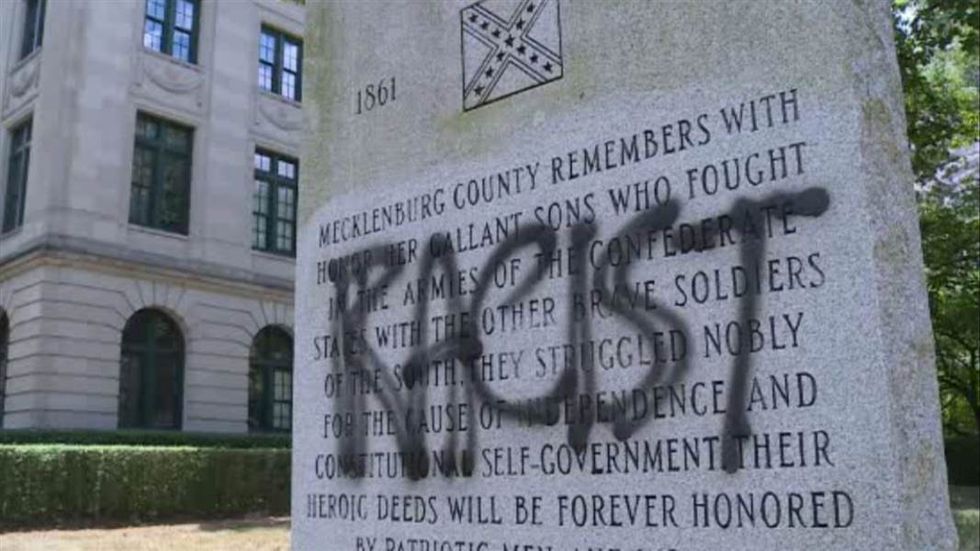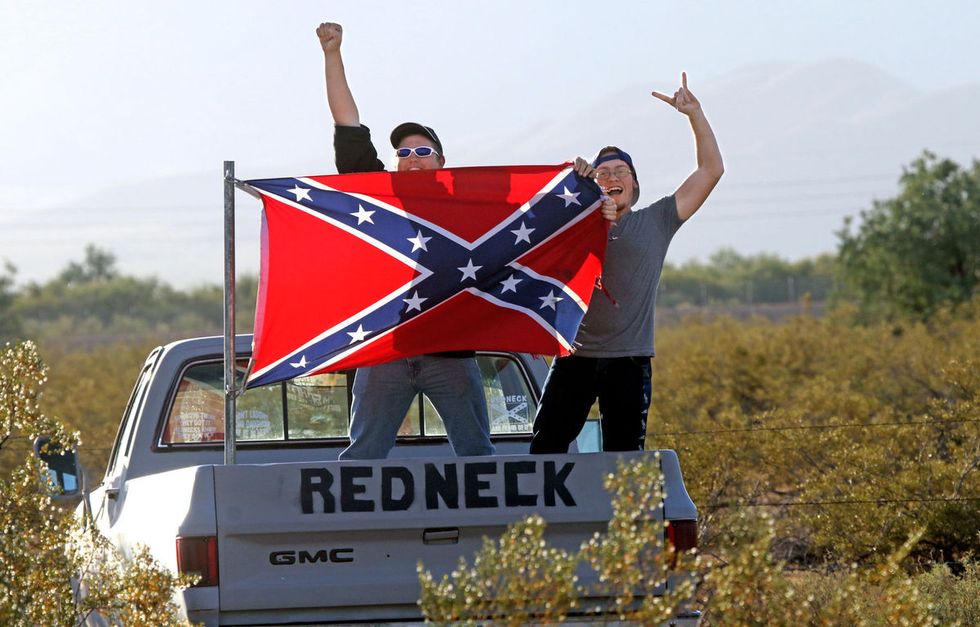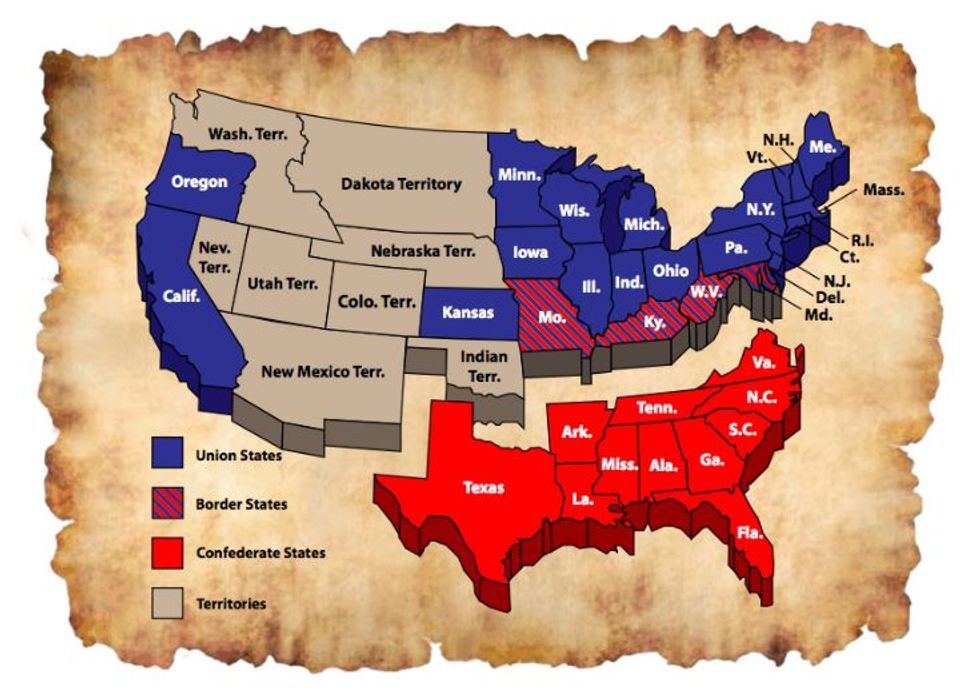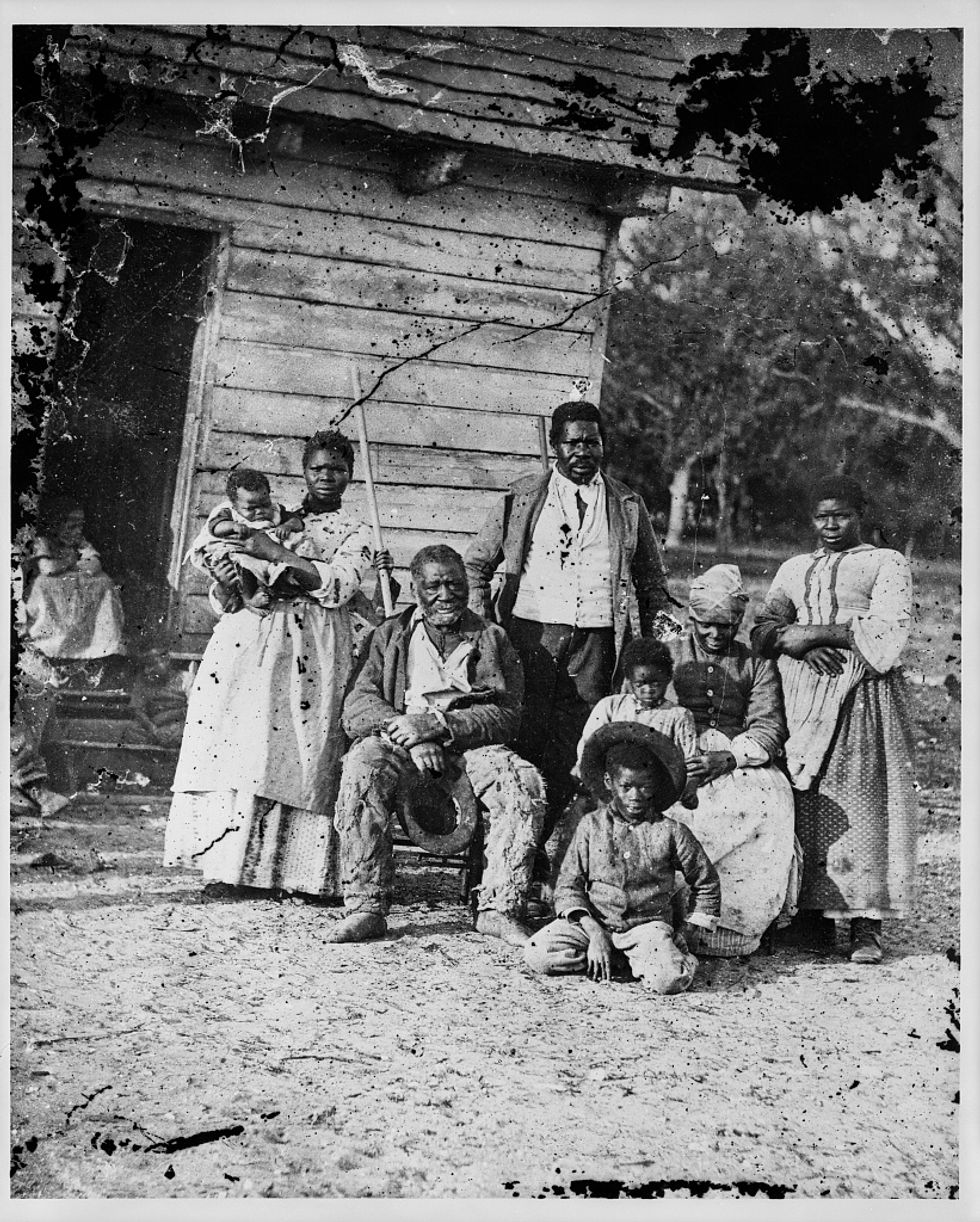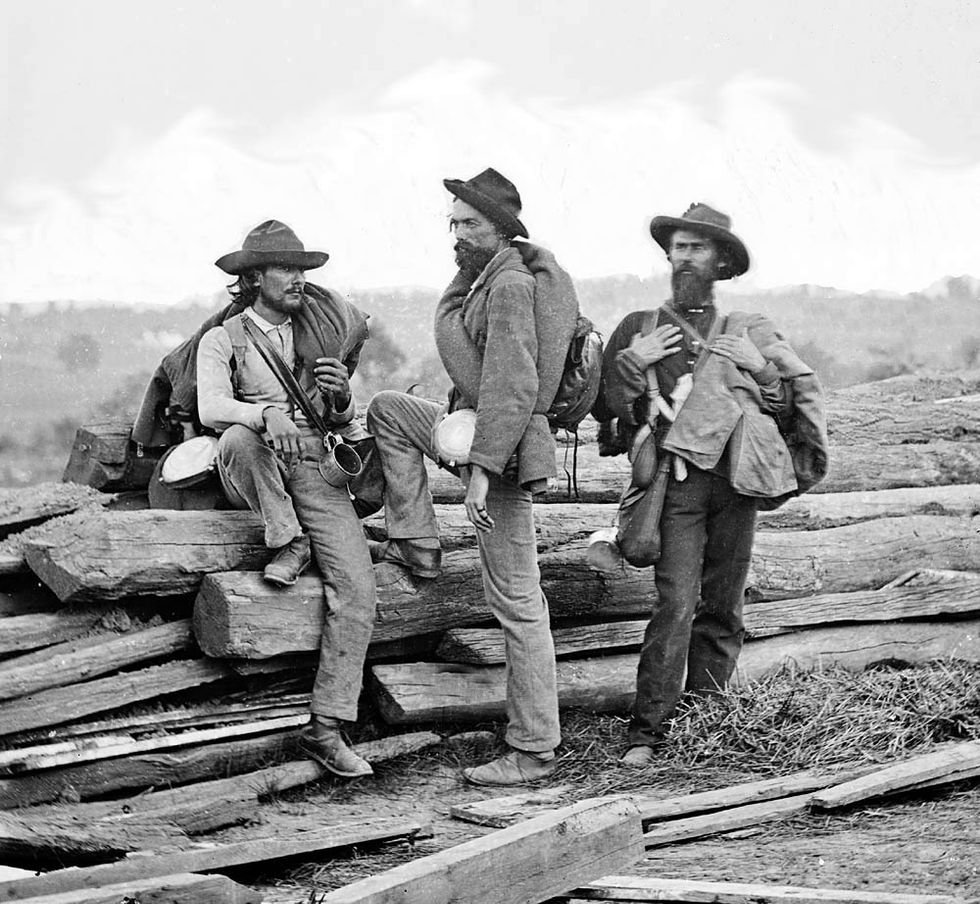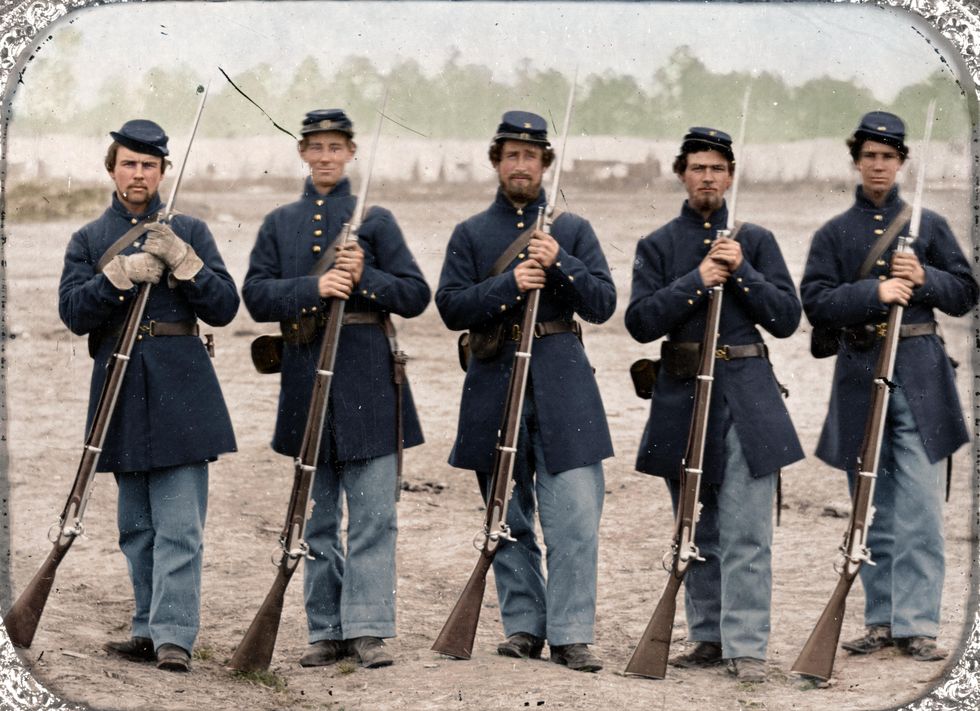Especially if you've been living in New Orleans, St. Louis, or other Southern cities, you've probably been hearing a lot lately about Confederate monuments — those towering old granite memorials sitting in the middle of traffic circles and dedicated to generals from ages past. Our country has been swept up in a pretty complicated argument: what do we do with Confederate monuments, the Confederate flag, and the very memory of the Confederacy?
Unless you live under a rock, you've probably seen the "rebel flag" somewhere, and you've probably heard people debate about what it means. Some folks say it's a symbol of their Southern heritage, and other folks say it's a symbol of hate. So where do we start with all this? How do we try to get to the bottom of this argument? How big of an impact is this argument having on Americans today?
We're going to try to figure this out, but I need you to do a few things for me:
1. There's a lot to understand before you can see the whole picture.
2. I know it's not always easy, but try to see things from the points of view that I present here.
3. Don't just take my word for it. Do your own research on this issue. Educate yourself.
Let's start with the basics — what exactly was the Confederacy?
Over 150 years ago, from 1861 to 1865, 11 states of the South left the Union, formed the Confederate States of America, and waged war against the United States. This conflict, of course, became known as the American Civil War.
The Civil War raged for four long, bloody years until at last the Confederacy was defeated. By the end of those four horrible years, 750,000 Americans (2% of the population at the time) were killed.
What was it all about?
As a Civil War historian, this is both the most difficult question I am asked and the one I am asked most frequently.
Let me start by putting it this way: It depends on who you ask.
A lot of Confederate apologists - defenders of the Confederacy's memory, as they may say - say that the Civil War started over the issue of states' rights. They argue that the United States government was in control of Northerners who wanted to take advantage of the South and the huge amounts of money they were making by selling cotton. But that's not exactly the whole story.
There's a counter-argument to the states' rights claim:
... States' rights to do what?
There is no one in their right mind who can deny that slavery was one of the root causes of our Civil War. Ever since our nation was born, slavery simmered beneath the surface. When Abraham Lincoln, who pledged to block slavery from expanding to any new states, was elected in 1860, that simmering finally boiled over.
Don't let anyone fool you — the Confederate States of America was created to preserve slavery in the South.
Let's get something straight here— the Confederacy was created by some of the richest men in America in the 1860s. Why? Because these guys made their fortunes on selling cotton, tobacco, and other crops that were grown on their several-thousand-acre plantations.
Who was the labor force that grew those crops? Enslaved people.
Guess what labor force doesn't need to be paid, can't quit their jobs, and are basically forced to be useful until the day they die? Enslaved people.
These rich dudes - who weren't just lavishly rich, but were also politically powerful - saw their wealth and power threatened. It's what they, their fathers, and their fathers' fathers had built their entire lives on. Their way of life - though we know it was an evil and horrific one - was threatened.
And so, they rebelled.
Don't believe me? Look what they had to say.
As each state seceded, it passed what was called an Ordinance of Secession. Look at what these documents say. (Bold font added)
From Georgia's: "For the last ten years we have had numerous and serious causes of complaint against our non-slave-holding confederate States with reference to the subject of African slavery."
From Mississippi's: "Our position is thoroughly identified with the institution of slavery-- the greatest material interest of the world. Its labor supplies the product which constitutes by far the largest and most important portions of commerce of the earth."
From Texas's: "That in this free government all white men are and of right ought to be entitled to equal civil and political rights; that the servitude of the African race, as existing in these States, is mutually beneficial to both bond and free, and is abundantly authorized and justified by the experience of mankind, and the revealed will of the Almighty Creator, as recognized by all Christian nations..."
And just take it from the Confederate Vice President Alexander Stephens: "As a race, the African is inferior to the white man. Subordination to the white man is his normal condition. He is not his equal by nature, and cannot be made so by human laws or human institutions. Our system, therefore, so far as regards this inferior race, rests upon this great immutable law of nature. It is founded not upon wrong or injustice, but upon the eternal fitness of things."
Those are the facts.
That's what the Confederacy was about but does that mean every Confederate soldier fought for slavery?
Well, not exactly.
Just what were soldiers of the South - like these Confederates captured by Union troops at the Battle of Gettysburg - fighting for?
Only a fraction of the average soldiers in the Confederate Army ever owned enslaved people. So why were they fighting?
In essence, these guys were often told by the Southern elites that "the Yankees" were coming to subjugate their way of life. Their political views legitimately were that the North was taking advantage of the South, and now that the South tried to stand up for itself, the Yankees would send in armies of invaders.
When the Union began forming armies to crush this new rebellion, well... it looked like those beliefs were coming true. Long story short, a lot of these guys were fighting to protect their homes. Their home was all they ever knew, and they were truly afraid for the safety of their homes, families, and friends.
But these guys definitely benefited from the institution of slavery. Though they might not have owned slaves, many of them rented enslaved people. Many of them used the services of other enslaved people. They used roads, bridges, courthouses, and churches that were built by enslaved people. Their entire world was built by the enslaved.
So were all Union soldiers fighting against slavery?
Many did, even from the beginning, but definitely not all.
There were a lot of Union soldiers who were what we call abolitionists - meaning activists who worked to end slavery. But there were a lot of others who, well... honestly didn't really have an opinion about slavery one way or the other. So why were they fighting?
These men were fighting to protect the Union. They believed that the United States had to stay together, and states just can't leave whenever they want. So when they saw a bunch of yahoos in Charleston, South Carolina start blowing holes in a U.S. Army fort and declare war, they jumped right into the war.
Even Abraham Lincoln felt this way early on in the war. He wrote in a letter in 1862, "If I could save the Union without freeing any slave I would do it, and if I could save it by freeing all the slaves I would do it. And if I could save it by freeing some and leaving others alone I would also do that."
It wasn't until later that abolitionists convinced Lincoln that the only way to defeat the Confederacy was to start freeing slaves. It was then that the meaning of the war really became complete.
... So, you remember what I said about things being complicated? Yeah, I meant it.
So here we are, over 150 years later. A lot of people in our country had relatives that fought for the Union. A lot of people in our country had relatives that fought for the Confederacy. And a lot of people in our country had relatives who were enslaved in the South.
Obviously, people care about memorializing their ancestors. I know I do. My 5x-great uncle fought for the Union. He fought for the entire war, was wounded in action, was captured, and nearly starved to death in enemy captivity. I know that a lot of Confederate soldiers - my ancestor's enemies - suffered horrific things through the war too.
I have a number of friends who are descended from Confederate soldiers, and they don't want to believe that their ancestors fought and died for nothing.
But there are people who have been ignored for a hell of a long time - the descendants of enslaved people.
Have you noticed the way I've been saying "enslaved people" and not "slaves?" That's not just me being weird. That's something that many of my fellow historians and I have started doing lately.
Why? Because it needs to be emphasized that these were people. These aren't livestock, the way a lot of Southern planters treated them at the time.
They were human beings with lives and stories. I'm not telling you that you have to start using one term instead of the other. But it got you thinking, didn't it?
But here's what I'm getting at here. When we used to tell the story of the Civil War, we often left out the stories of the enslaved. Now don't get me wrong, I'm primarily a military historian. I love studying battles, numbers, campaigns, and all that stuff. But we can't tell the story of this war without telling the stories of the people at the root of its cause.
That's why we are where we are today.
Guys, I'm going to say something I tend to say in most of my opinion pieces — I don't have all the answers, and I don't claim to know everything. But I do think that there are some important things that need to be said about this situation.
In May, 2017, the city of New Orleans decided to haul down many of its Confederate monuments. Some of these monuments were to respectable men - like General P.G.T. Beauregard, who worked to improve race relations after the war. Some of these monuments were to men I personally think are worth no respect - like Confederate President Jefferson Davis.
We're at the height of this discussion, folks. How do we remember the Confederacy? How do we remember the Civil War and its legacy?
I can't answer all of that for you. You need to weigh that for yourself.
The fact, though, is this — the history of America isn't simple. It's filled with both good and evil, and that good and evil can be on both sides. We can't ignore the evil. We need to recognize it and remember its victims but we need to see the entire picture.
This debate is bound to keep going on. As it continues, try to see the whole picture. Take in all the details. It's up to you to determine what you feel is right in how we remember our heritage.

